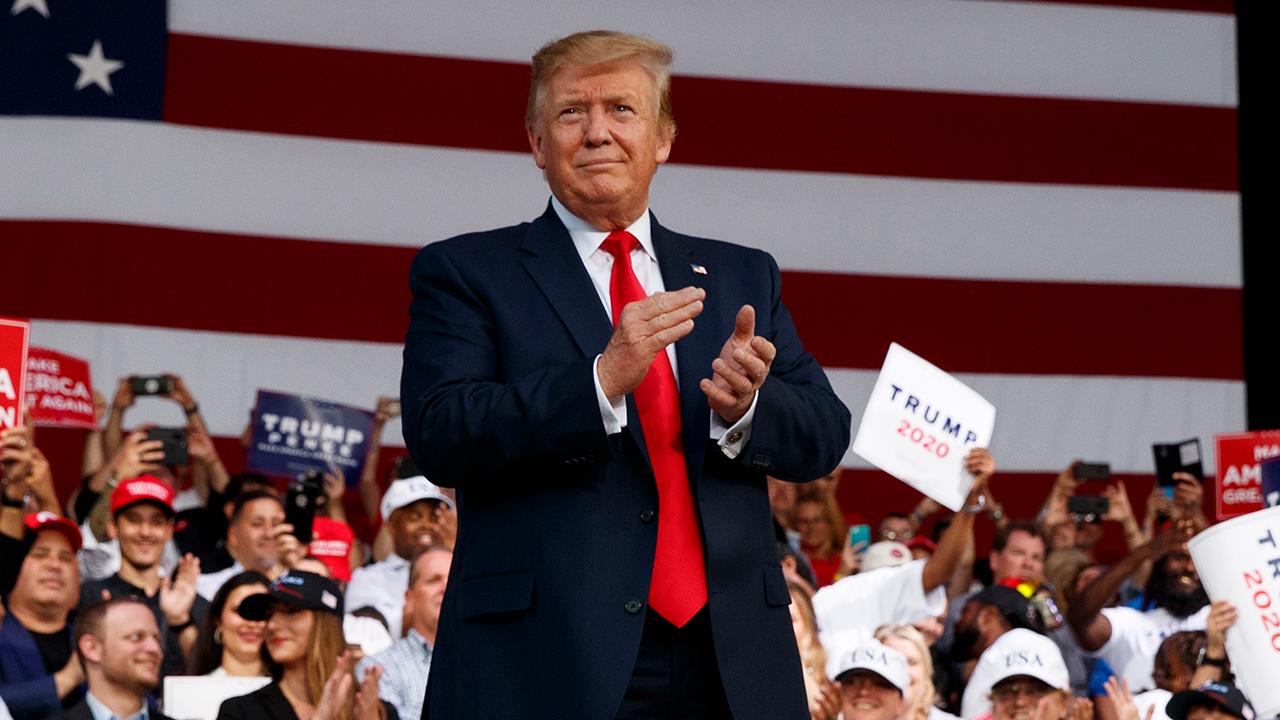These US companies say Trump's tariffs will hurt their bottom line
Since first implementing tariffs more than a year ago, President Trump has repeatedly claimed that it’s China that’s bearing the brunt of the import tax.
But that’s actually not the case.
Over the course of the year, as Trump’s China tariffs have gradually increased, a handful of prominent U.S. companies have warned that Trump’s China tariffs will ultimately hurt their bottom line by forcing them to foot the bill and raise the cost of their products.
“Many other smaller businesses are dealing with escalating costs and the uncertainty only magnifies,” said Vijay Eswaran, the founder of QI Group of Companies. “I don’t think it ever started with the intent to help American companies. It was a political move, and clearly not very well thought out.”
FOX Business takes a look at some of the companies that have been vocal about the negative effect tariffs could have on their operations.
Apple: Apple is one of the most vulnerable companies to the trade war as it manufactures most of its products in China. In September last year Apple said the 10 percent tariff on $200 billion worth of Chinese goods would affect its watch, wireless headphones and other products. That tariff has since increased to 25 percent.
"Tariffs increase the cost of our U.S. operations, divert our resources and disadvantage Apple compared to foreign competitors," Apple wrote in its filing with the U.S. Trade Representative. "More broadly, tariffs will lead to higher U.S. consumer prices, lower overall U.S. economic growth, and other unintended economic consequences."
China accounts for about 17 percent of Apple sales and profits.
The iPhone-maker's stock is already experiencing its worst month of the year, thanks in part to an analyst note from HSBC, which downgraded its outlook for the company because of the trade war.
Walmart: Last week, one day after Trump hiked the tariff rate to 25 percent from 10 percent, Walmart warned in its quarterly earnings report that it would raise prices for U.S. consumers in order to offset the cost of tariffs.
“Increased tariffs will lead to increased prices for our customers,” Walmart CFO Brett Biggs said during a conference call. It’s unclear which products will be affected, or by how much prices will increase.
Macy’s: While left relatively unscathed by the first round of tariffs, Macy’s is now feeling the impact of the trade war. Macy’s CEO Jeff Gennette told investors in May that higher taxes on furniture will affect the department store’s business, but warned that if a fourth wave of tariffs is placed on imports, it could mean higher retail prices for shoppers.
"Looking at all those categories and those brands that are included, it is hard to do the math to find a path that gets you to a place where you don't have a customer impact," Gennette told investors.
Deere: Deere cut its profits and sales outlook for 2019, largely because of concerns about how the tariffs are affecting the agricultural sector -- particularly soybean farmers. The Illinois-based company now expects to earn about $3.3 billion this year, down from its previous forecast of $3.6 billion.
CLICK HERE TO GET THE FOX BUSINESS APP
"Ongoing concerns about export-market access, near-term demand for commodities such as soybeans, and a delayed planting season in much of North America are causing farmers to become much more cautious about making major purchases," Deere Chairman and CEO Samuel Allen said in a prepared statement last week.




















